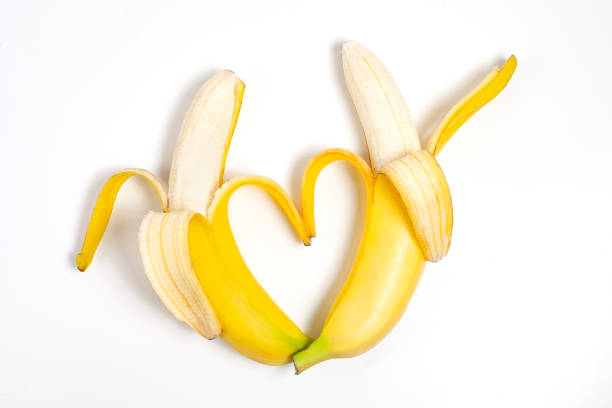For years, scientists have known that there is a link between potassium and heart health. Potassium is a key nutrient that helps regulate blood pressure and keep the heart functioning properly. Potassium is an essential mineral for human health. It is involved in many cellular processes, including the regulation of blood pressure and the maintenance of fluid and electrolyte balance. Bananas are a great source of potassium, and so it was thought that eating bananas could help reduce the risk of heart disease.
The new study by researchers at the University of Alabama at Birmingham raises the possibility that doctors may one day be able to help patients avoid some heart disease by analyzing their potassium levels.?

The study found a correlation between reduced dietary potassium and the formation of vascular calcification and aortic stiffness. Aortic stiffness, commonly known as “hardening of the arteries,” is predictive of heart disease in humans. The study’s findings suggest that increased levels of aortic stiffness may be present in mice fed a reduced-potassium diet, compared to those fed a normal diet. This is an important finding, as it suggests that potassium levels may play a role in the development of the heart.
Potassium? The Most Essential, Yet Overlooked, Mineral
Potassium is a vital mineral that is involved in many important processes in the body. It helps to regulate blood pressure, maintain fluid balance, and is essential for proper muscle function. Despite its importance, potassium is often overlooked when it comes to nutritional supplements and diets.This is a mistake, as potassium can be vital for maintaining good health. If you’re not getting enough potassium in your diet, you may be at risk for high blood pressure, stroke, and other health problems. Thankfully, there are many foods that are rich in potassium, so it’s easy to get the recommended daily amount. Make sure to include plenty of potassium-rich foods in your diet to keep your body healthy and functioning properly.
How much is too much Potassium?
Potassium is an essential nutrient that helps keep our heart healthy and our muscles functioning properly. However, too much potassium can be dangerous and even fatal. So how much is too much? The answer depends on a number of factors, including our age, health, and activity level. For most healthy adults, a potassium level of 4.7 mmol/L is considered safe. However, for those with certain medical conditions, a potassium level of 2.6 mmol/L is considered safe. If you have a medical condition that puts you at risk for high potassium levels, be sure to talk to your vascular doctor about how much potassium is safe for you. And as always, if you have any questions or concerns, please speak with your vascular doctor.
What are potassium-rich diets and supplements other than bananas?
Potassium-rich diet or supplement can be beneficial for those who have high blood pressure, heart disease, or other conditions that may be helped by increasing potassium levels.There are many foods that are high in potassium, including fruits and vegetables, beans, nuts, and seeds. Potassium supplements are also available, although it is generally best to get minerals from food sources rather than from supplements.
Some of the foods highest in potassium, along with their potassium content, are as follows:
- sweet potatoes: 694 milligrams (mg) each
- fresh tomatoes: 664 mg per 1/4 cup
- fresh beets: 644 mg per 1/2 cup
- white beans: 600 mg per 1/2 cup
Other foods high on the list of potassium-rich foods are:
- yogurt
- most beans
- clams (canned or fresh)
- prunes
- carrots
- meaty fish
- molasses
- soy
- squash
- bananas
- milk
- orange juice.
However, it is always prudent to consult with your vascular surgeon or nutritionist to obtain a comprehensive guide on potassium diets and their link with vascular health. This guide can help you to make sure that you are getting the right amount of potassium for your individual needs and help you to avoid any potential health risks.

As the editor of the blog, She curate insightful content that sparks curiosity and fosters learning. With a passion for storytelling and a keen eye for detail, she strive to bring diverse perspectives and engaging narratives to readers, ensuring every piece informs, inspires, and enriches.









